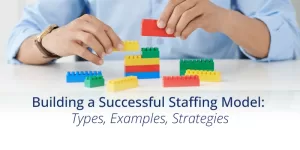Personality Tests Are Back – and They’ll Help You Hire the Best Talent
Personality tests are back, and they’re getting more buzz than ever before. Does all this talk of Myers-Briggs, Keirsey and Jungian testing make you wonder if you should be using personality testing as part of your hiring process?
Our Salt Lake City recruiter team has put together a little background on the evolution of personality tests as a means of assessing candidates and how using testing can help you find and hire the best talent for your team.
Personality tests, then and now.
Personality testing as part of the hiring process first gained popularity in the 1940’s. Corporate powerhouses like AT&T tested candidates applying for management positions to determine whether they could easily fit into leadership roles and align themselves with company culture. After falling out of favor in the 1960’s, there was a resurgence in the popularity of these tests in the 1990’s, largely due to industrial psychologists revamping the testing processes.
By 2001, executive recruiters at 26% of major corporations were using personality tests to assess candidates. Increasing availability and decreasing costs led more companies to adopt the practice; in 2013, 57% of companies reported using the tests as part of the recruiting and hiring process. Today’s widespread use of automated job applications is prompting more and more organizations to adopt personality testing.
What can personality tests do for you?
Recruiting teams and employment agencies that use these tastes often see a decrease in the time and costs required to find suitable candidates and, ultimately, lower turnover rates.
Personality tests can help you:
- Reveal introverts who may possess the skills to do the job but may otherwise be eliminated as candidates due to their tendency to be shy during interviews.
- Determine whether extroverted candidates can succeed in solitary roles despite the common belief that those roles should be reserved for introverts.
- Weed out candidates who interview well but possess characteristics that may prevent them from fitting into company culture.
- Eliminate the risk of first-impression bias during the recruiting process.
Personality tests can’t do it all, though.
Remember, while personality tests can boost the success rates of your recruiting and hiring process, they are only one means necessary to determine a good fit. The tests are based on algorithms and calculated by data sets, which means they can’t interpret a candidate’s nuances the way a recruiter can.
It’s still crucial to commission a recruiter or employment agency that can determine how well a candidate will align with your company culture, complement existing team members and have a vested interest in the organization’s success. Our executive recruiting team recommends having these tests in your toolbox, yes – as long as the rest of the toolbox is well-stocked.
Still have questions about personality tests? Contact a Salt Lake City recruiter in our office for insight and guidance on how you can find and keep the best talent.

Struggling to find top
talent for your business?
Connect with the expertes at Recruiting Connection and discover the difference our full-service recruitment can make.
Contact Us Today















